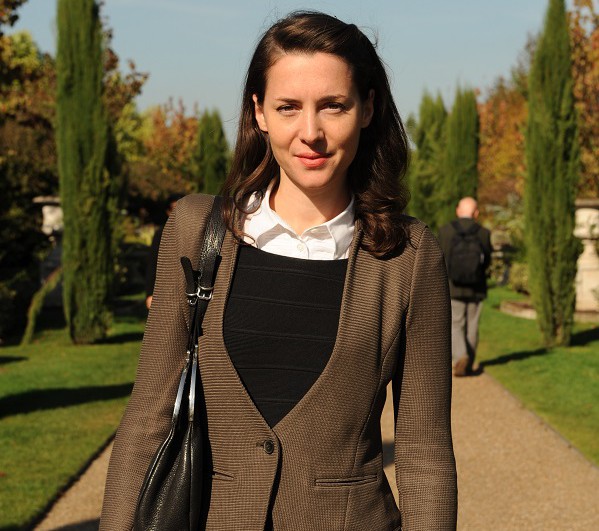
With Frieze New York fast approaching, we caught up with Victoria Siddall, the “wunderkind director” of the Frieze fairs (See What Top Dealers Are Bringing to Frieze New York). Fresh off the plane from the Venice Biennale, Siddall, who also directs Frieze London and Frieze Masters, filled us in on what’s new, what’s cool, and how to successfully navigate it all (see 10 Tips To Make Art Fairs More Fun).
How was Venice?
Amazing. It’s always a bit like Disney World isn’t it? Just a crazy place… It’s still sinking in for me.
What’s new and exciting this year at Frieze?
Something I’m personally very excited about is the Spotlight section, which we started at Frieze Masters in 2012. It’s a curated section put together by Adriano Pedrosa, with solo presentations of 20th century artists from around the world. There’s really an element of discovery to it, because a lot of these artists are not that well known… It’s really global, and it’s been a huge hit at Frieze Masters. Bringing 20th century work into this fair is quite new, because it’s always been very contemporary, but we do feel there is a real interest.
I’m also excited to see the Tribute to Flux-Labyrinth in the Projects section, which is a re-creation of an installation originally done by George Maciunas and the Fluxus artists in Berlin in 1966. Each of the artists created an obstacle in the labyrinth which you had to eventually get around, so this is a re-creation of that, with some of the original obstacles—Cecilia [Alemani, the curator] has also invited contemporary artists to create new obstacles. I think it will be a huge hit.
We’re obviously excited about the Jerry Saltz talk. Can you tell us how that came about?
His name came up because there’s been so much going on around him and his presence on social media, and he tends to write strongly opinionated things. It’s great, because he creates a lot of responses. We thought the most interesting thing to do with him would be just to sort of allow people to ask questions. We’ve already started promoting it already under the hashtag #askjerry. As soon as we launched it, we got flooded with questions.
How do you feel about all these satellite fairs continuing to crop up around Frieze?
It’s a logical next step, in a way. It’s very flattering.
What do you think differentiates Frieze from other major international fairs?
One of the things that makes it very special are the cities we’ve chosen. London and New York are the most important art cities in the world, with some of the greatest museums and galleries in them… There’s also an element of discovery that probably started with Frieze magazine being the place that you would look to to find out about interesting young artists all over the world, so the fairs have continued in that vein.
Why do you think art fairs have become such a force in the art world over the past few years?
I think there are more and more galleries opening, there are more and more artists making work, and fairs, at least good fairs, give the opportunity to see the best work that’s being made all over the world right now. And that’s very challenging to do unless you have unlimited funds and no job. It’s also a chance for the art world to come together in one place, under one roof—conversations happen and good things come out of that.
What are your tips for art fair newbies?
First, it’s really worth buying your tickets in advance, because we do sell out of tickets, especially on weekends. And allow a whole day, because trying to rush around the fair in a couple hours is tough. The wonderful thing is that then you can go to a talk, you can have lunch at one of the fantastic restaurants, and participate in the Projects. Beforehand, download the map of the fair and just highlight the galleries you really don’t want to miss, and then you can stumble on other things along the way.
How do you prepare for the craziness of the week and how do you unwind when it’s all over?
There’s an amazing team in the background [doing] a lot of the preparation for this fair. They are the people that are making it happen. I obviously encourage everyone to take at least a short break after because, as you know, it’s an extremely intense week. So maybe go lie on a Greek island or someplace for a little while. But it’s not really a good time for me to take a long break, because there’s so much other stuff going on. The whole cycle takes a year, so as soon as this is done there’s a lot of evaluating and decisions that need to be made before applications open in July.